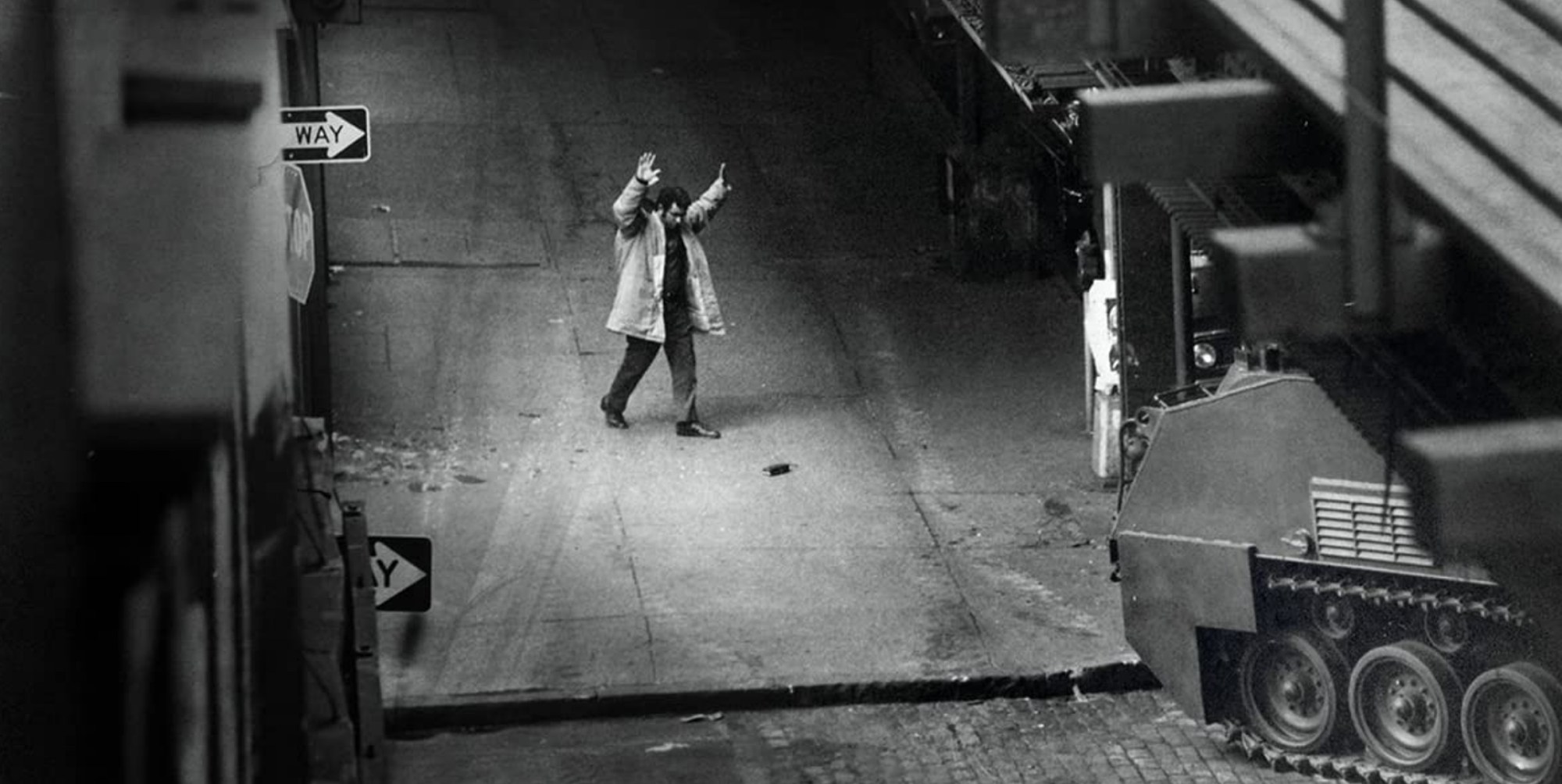
- Festivals
2021 TIFF Notes: Docs: “Hold Your Fire”
In January 1973, 23-year-old MTA worker Shu’aib Raheem led a group of four young Black Muslims into a Brooklyn sporting goods store with the intent of stealing some guns. They would be cornered before they could escape, and a shootout and high-profile hostage standoff of nearly 48 hours would ensue. The fascinating new documentary Hold Your Fire, which just enjoyed its world premiere at the Toronto International Film Festival, uses the details of this case, as well as new interviews with various participants, to unpack the still at-odds perspectives of the tragic event, and examine both the toxic mindset of situational “victory” within law enforcement communities and the roots of conflict resolution reform.
Directed by Stefan Forbes, Hold Your Fire offers up an object lesson of differing points of view forged by high-stress moments. The central event here, which marked a turning point in the New York City Police Department’s approach to hostage situations, is recounted by parties on all sides of the conflict. That includes, of course, the police (among others Captain Al Baker and officer Brian Tuohy, the latter whose partner was shot and killed that day), perpetrators (Raheem and Salih Abdullah) and surviving hostages (Jerry Riccio and Rosemary Catalano), as well as other individuals called in to try to help dial down the tension, like criminal defense attorney Gerald Lefcourt and Harvey Schlossberg, a NYPD officer with a doctorate in psychology.
Of the interviewees, Riccio (whose cadence and mannerisms recall Alan Arkin) and Raheem are the most gripping narrators, providing both reasoned individual reflection and fascinating counterpoint to one another. Their traumas (along with that of other parties) are respected and honored.
Core to its thematic exploration, Hold Your Fire assays contemporaneous “fog of war” misinformation (it was reported that the men were members of the Black Liberation Army, which they were not) and conflicting directives (barked police orders to put one’s hands up and also not move, for example), and how these may have informed police thinking and response to events as they unfolded.
It was into this void, and a general NYPD macho culture of meeting violence or even resistance with greater violence, that Schlossberg stepped – an odd-duck scholastic figure almost as sneered at and looked down upon by colleagues as an internal affairs officer. His proselytizing for de-escalation was radical at a time when rules of engagement seemed to favor a lot of improvisational freelancing, but the underpinning of the reasoning he cites here comes across as always highly rational, and concise.
Smartly, the film also explores humanizing details that shade the motivation of the robbers. A Sunni Muslim, Raheem’s desire for additional firearms lay in a dispute with members of the Nation of Islam, who had already broken into his apartment and terrorized his wife. Rebuffed by police in an effort to procure protection for his family, he felt he had no other recourse.
It’s intriguing to note how Hold Your Fire overlaps with some of Forbes’s other work. One More Dead Fish actually tells the story of Canadian fishermen who seized a federal building and barricaded themselves inside for almost one full month. Meanwhile, the underrated Boogie Man: The Lee Atwater Story, about the infamous, late, Republican political operative, showcases the director’s skill with locating sympathy in a morally dubious or compromised character. That latter element is exercised here not merely in regard to the convicted criminals but especially law enforcement officers – some of whom express wince-inducing opinions early on, but later either acquit themselves or at least indicate, under questioning, some measure of awakened thinking.
Forbes also builds out a solid technical package that undergirds and elevates this true crime story. Jonathan Sanford’s score lives in the era, complementing the claustrophobic vibe of much of the historic news footage without over-dialing it. Wisely, Forbes also doesn’t attempt to establish definitive truth on every detail. Serving as his own editor, he parcels out specific aspects of the standoff, allowing for viewers to have some sense of narrative discovery. Overall, it’s a canny way in which to frame this tale, imbuing the bigger thematic issues with a sense of some movement gained but progress yet still to be made. Hold Your Fire is smart enough to know that it doesn’t have all the answers. But in telling this particular single story, with all its related flare bursts of tragedy, it forces audiences to sit with the question of what fair, reasonable, and intelligent policing looks like.

